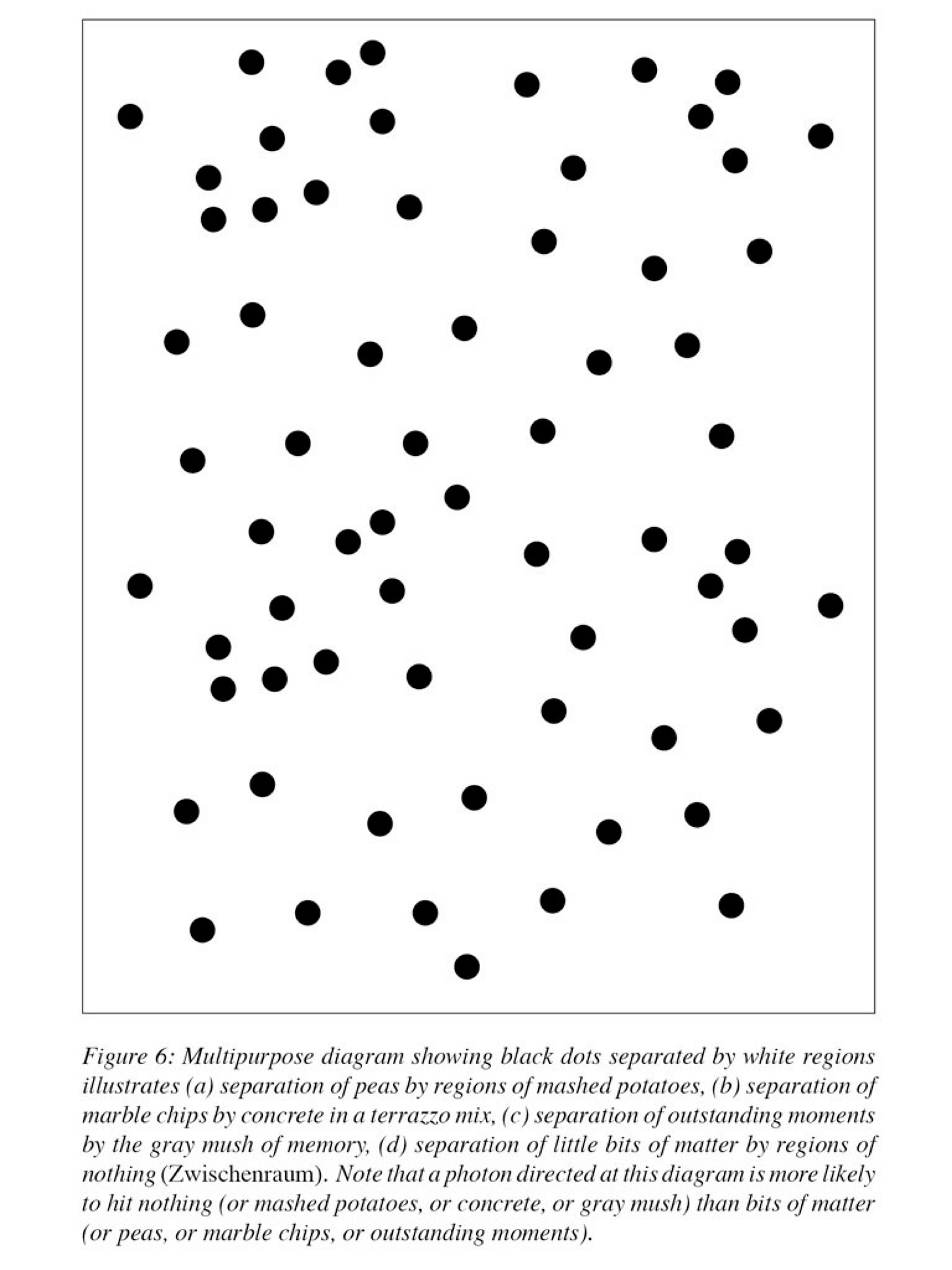I was annoyed by articles without cross-references. I doubted that one little article could be all there was to say on a subject. Could this really be the last word? Was there nothing else related to this topic? At first, I tried getting out of these dead ends by backing up. I’d retreat an article or two along the irregular path I’d been following until I came to a cross-reference I hadn’t chosen. Then I’d take that route instead of the one I’d followed originally and hope that it would put me on a longer trail, but I didn’t care for that technique. Progress is satisfying; regress is not. Backing up felt like acknowledging a mistake. It made my having come to a dead end feel like something to be ashamed of, as if I should have known that a particular reference would lead nowhere, was a route not to be taken, as if I ought to have been able to anticipate my moves dozens ahead, like a chess master, and choose only the routes that went somewhere. I told myself that it was foolish to think that way, because if some paths weren’t really meant to be taken, that would mean that some of the entries weren’t really meant to be read; they were just taking up space in the books, a joke of the compilers.
(It never occurred to me at the time that this might in fact be the case, but years later, when I worked for the venerable firm that published The Young People’s Cyclopedia, I relieved the tedium of long days in a windowless office by concocting entries for people and places that had never existed and mapping referential mazes that would send young researchers spinning into bottomless vortices of misdirection. These were articles that no one would ever “look up,” since they had no referents in fact, nothing in them that anyone would ever need to know, but they would, I hoped, amuse the curious wanderer, the kind of encyclopedia-reader I had been.)
Sometimes I got out of cross-referential dead ends by simply jumping to the next article, or to another on the same page, or flipping the pages until something else caught my eye, but this felt wrong, like leaping a fence into some stranger’s yard and dashing through to the next street, or leaping like Ping-Pong balls from mousetrap to mousetrap across a tabletop. It was a short, easy way out of the cul-de-sac, but taking the easy way out was ignoble. The noble thing to do, it seemed to me, was to swallow your pride, retrace your steps, and find out how things were connected, and when there were no paths provided, cut your own, so that you could, and eventually would, get everywhere, know everything.
My mother called me to dinner just as I decided all that. At the table, my father, rightly proud of himself for having bought the encyclopedia for me, said, “Tell me what you’ve learned so far.” The poor guy probably wanted a fact or two, just something to show him that I’d opened the books and could remember something from them, but I was full of my idea, and blathered on and on about it. I tried to give him the whole thing, lead him along the whole path I’d followed, and bring him to the conclusion I’d reached.
“That’s enough, Peter,” he said when he’d had enough. “Eat your dinner.”
“All knowledge is interrelated,” I said, wrapping it up in a hurry.
He was stunned. My mother was stunned. I was stunned. Where did I get that idea? Did I mean it? Did I believe it? Was it true? Was I on to something? Or was I just a kid showing off? I stirred my peas into my potatoes silently, wary of saying another word.
[to be continued]
Have you missed an episode or two or several?
You can begin reading at the beginning or you can catch up by visiting the archive or consulting the index to the Topical Guide. The Substack serialization of Little Follies begins here; Herb ’n’ Lorna begins here; Reservations Recommended begins here; Where Do You Stop? begins here.
You can listen to the episodes on the Personal History podcast. Begin at the beginning or scroll through the episodes to find what you’ve missed. The Substack podcast reading of Little Follies begins here; Herb ’n’ Lorna begins here; Reservations Recommended begins here; Where Do You Stop? begins here.
You can listen to “My Mother Takes a Tumble” and “Do Clams Bite?” complete and uninterrupted as audiobooks through YouTube.
You can ensure that you never miss a future issue by getting a free subscription. (You can help support the work by choosing a paid subscription instead.)
At Apple Books you can download free eBooks of Little Follies, Herb ’n’ Lorna, and Reservations Recommended.
You’ll find overviews of the entire work in An Introduction to The Personal History, Adventures, Experiences & Observations of Peter Leroy (a pdf document), The Origin Story (here on substack), Between the Lines (a video, here on Substack), and at Encyclopedia.com.





